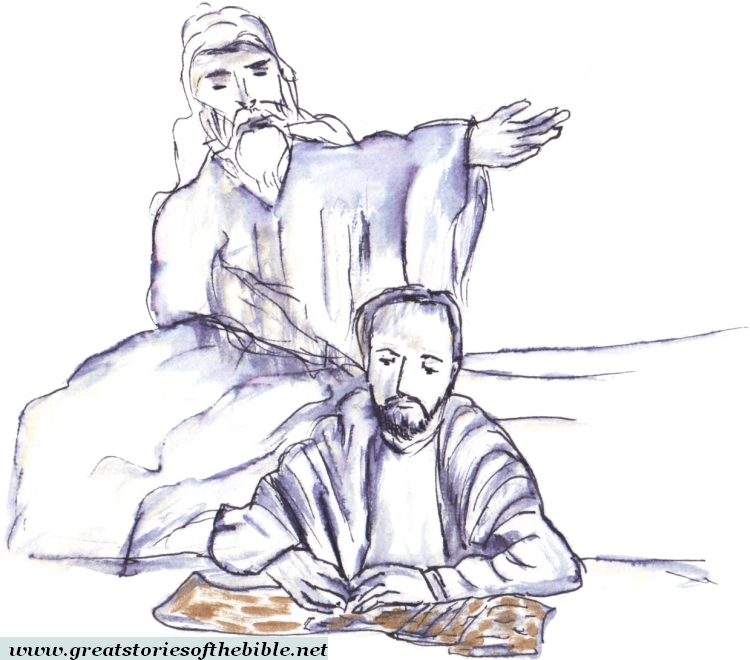Jeremiah - episode 4
Lord, you have seduced me
In the present post we report an excerpt from Jeremiah’s “Confessions” (Jer 20,7-18). They are texts in which the prophet reflects on the failure of his ministry and consults the Lord (I leave the other four to your personal reading: Jer 11,18-12,6; 15,10-21; 17,14-18; 18,19-23).
«LORD, you have seduced me, and I was seduced; you are stronger than I, and have prevailed: I am become a laughing-stock all the day, every one mocks me. For as often as I speak, I cry out; I cry, “Violence and destruction!” because the word of the LORD is made a reproach to me, and a derision, all the day. If I say, “I will not make mention of him, nor speak any more in his name,” then there is in my heart as it were a burning fire shut up in my bones, and I am weary with forbearing, and I can’t contain it. For I have heard the defaming of many, terror on every side. “Denounce, and we will denounce him,” say all my familiar friends, those who watch for my fall; “perhaps he will be persuaded, and we shall prevail against him, and we shall take our revenge on him.” But the LORD is with me as an awesome mighty one: therefore my persecutors shall stumble, and they shall not prevail; they shall be utterly disappointed, because they have not dealt wisely, even with an everlasting dishonor which shall never be forgotten. But, the LORD of hosts, who tests the righteous, who sees the heart and the mind, let me see your vengeance on them; for to you have I revealed my cause. Sing to the LORD, praise the LORD; for he has delivered the soul of the needy from the hand of evildoers. Cursed is the day in which I was born: do not let the day in which my mother bore me be blessed. Cursed is the man who brought news to my father, saying, A boy is born to you; making him very glad. Let that man be as the cities which the LORD overthrew, and did not repent: and let him hear a cry in the morning, and shouting at noontime; because he did not kill me from the womb; and so my mother would have been my grave, and her womb always great. Why came I forth out of the womb to see labor and sorrow, that my days should be consumed with shame?». In the passage emerges strongly once again the fact that the prophetic call of Jeremiah is not something extrinsic to him, but it is part of his person, it is his most intimate identity (do you remember the story of his vocation?). He cannot give it up even if he wants to. The second point I underline is the Lord’s silence about the persecution of his messenger: where is His justice? The prophet’s failure is ultimately the failure of the Lord himself who sent him and the failure of His peace project on the people. Can the Lord fail in front of the human heart hardness, suffering as a lover betrayed and abandoned by an unfaithful wife? In the figure of Jeremiah, the righteous sufferer, betrayed even by friends, not married and lonely obeying the Word received (see Jeremiah - episode 3) is possible to see the outlines of another person who, several centuries later, will bring these issues to the fore: Jesus of Nazareth.
We start to tell the concrete persecutions against Jeremiah’s ministry: «It happened in the fourth year of Jehoiakim the son of Josiah, king of Judah, that this word came to Jeremiah from the LORD, saying, “Take a scroll, and write on it all the words that I have spoken to you against Israel, and against Judah, and against all the nations, from the day I spoke to you, from the days of Josiah, even to this day. It may be that the house of Judah will hear all the evil which I purpose to do to them; that they may return every man from his evil way; that I may forgive their iniquity and their sin.”» (Jer 36,1-3). 
Jehoiakim is the son of the pious King Josiah (see Josiah - episode 1 and Josiah - episode 2). He was put on the throne by Pharaoh Necoh, who killed his father, and he was then subjected to Nebuchadnezzar, king of Babylon, who took control of the region by defeating the Egyptians in the battle of Carchemish (605 BC). «Then Jeremiah called Baruch the son of Neriah; and Baruch wrote from the mouth of Jeremiah all the words of the LORD, which he had spoken to him, on a scroll. Jeremiah commanded Baruch, saying, “I am shut up; I can’t go into the house of the LORD: therefore you go, and read from the scroll, which you have written from my mouth, the words of the LORD in the ears of the people in the LORD’s house on the fast day; and also you shall read them in the ears of all Judah who come out of their cities. It may be they will present their supplication before the LORD, and will return everyone from his evil way; for great is the anger and the wrath that the LORD has pronounced against this people.” Baruch the son of Neriah did according to all that Jeremiah the prophet commanded him, reading from the scroll the words of the LORD in the LORD’s house» (Jer 36,4-8).
We will discover the consequences of this reading in the next post.